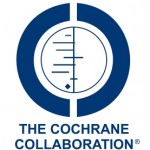
The temporomandibular joint (TMJ) as with many of the other joints, can be affected by osteoarthritis (OA). This is characterized by progressive destruction of the internal surfaces of the joint which can result in debilitating pain and joint noises. Osteoarthritis (OA) is the most common form of arthritis affecting the TMJ. The aim of this Cochrane Review was to investigate the effects of different surgical and non-surgical therapeutic options for the management of TMJ OA in adult patients.
Detailed search strategies were conducted in Cochrane Oral Health Group Trials Register, The Cochrane Central Database , Medline, Embase and PEDro databases to identify randomised controlled trials (RCTs) comparing any form of non-surgical or surgical therapy for TMJ OA in adults over the age of 18 with clinical and/or radiological diagnosis of TMJ OA according to the Research Diagnostic Criteria for Temporomandibular Disorders (RDC/TMD) guideline or compatible criteria. There were no language restrictions
The main outcomes considered were pain/tenderness/discomfort in the TMJs or jaw muscles, mandibular movement and TMJ sounds. Secondary outcomes included quality of life measures, patient satisfaction, morphological changes of the TMJs and any adverse effects. Screening and extraction of data and assessment of bias was conducted independently by two authors.
Three RCTs were included in this review, However meta-analysis was not possible due to wide clinical diversity between the studies. The reports indicate a not dissimilar degree of effectiveness with intra-articular injections consisting of either sodium hyaluronate or corticosteroid preparations, and an equivalent pain reduction with diclofenac sodium as compared with occlusal splints. Glucosamine appeared to be just as effective as ibuprofen for the management of TMJ OA.
The authors concluded
In view of the paucity of high level evidence for the effectiveness of interventions for the management of TMJ OA, small parallel group RCTs which include participants with a clear diagnosis of TMJ OA should be encouraged and especially studies evaluating some of the possible surgical interventions.
The authors also highlight issues regarding the classification of TMJ disease and the use of recognized criteria to allow comparisons. In addition they note the potential of placebo or sham interventions in future research and the use more comprehensive outcome measures as well as more long-term outcomes.
de Souza RF, Lovato da Silva CH, Nasser M, Fedorowicz Z, Al-Muharraqi MA. Interventions for the management of temporomandibular joint osteoarthritis. Cochrane Database of Systematic Reviews 2012, Issue 4. Art. No.: CD007261. DOI: 10.1002/14651858.CD007261.pub2.
